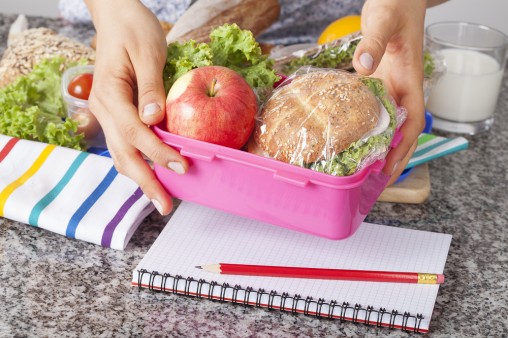Research into college eating habits shows that almost half of the students survive on sugar, pizzas, and pasta.
How many times have you heard that you should eat at least five fruits and vegetables a day for a healthy diet? More than once, I am sure; among parents, teachers and other infomercials you must have got the message. And it is not so hard to follow. Eat an apple for breakfast, a mixed salad or sandwich for lunch, a banana in the afternoon and a pizza or pasta with vegetables for dinner, and that should be more than five, right? Well yes, that is if you have free time to spend in the supermarket, or even better, greengrocers; if you have time to prepare the food and cook something different every day; or even if you simply enjoy preparing and consuming good meals with friends and family. In other words, eating five fruits and vegetables in a healthy diet is easily done, but not if you are a student.
Indeed, students tend to eat on the go for various reasons, and they usually: use time between lectures, are frequently on the move, have campus accommodation with no kitchen, fear that they will miss social events if they are alone in the kitchen, etc. However, this does not mean that it is not good for you and that the meal is unhealthy. It is, of course, possible to find vegetable sandwiches, salad boxes and other healthy ready meals. The other extreme of eating one apple or a tiny salad portion does not constitute a proper meal either.
Students’ Eating Habits
According to the Independent, a recent survey has shown that almost half of the students surveyed intended to survive on sugar, pizzas, and pasta. The survey also found that the majority of students claimed they skipped breakfast almost every day. As a result, they said they gained weight during their first year at university, eleven pounds on average. While being overweight has negative effects on our general health, it also contributes to poor mental health and well-being. Consequences of a poor diet also include low self-esteem, inability to concentrate and perform well, and a constant state of fatigue. Again, not all students have the same habits, and maintaining such a diet is not an easy work.
However, universities encourage physical activities with different sports team and nutrition programs, and are generally great at campaigning to raise awareness on these issues. These initiatives may not fully help students eat better, since there is also a money problem; many of them are on a tight budget and are struggling to pay for organic and healthy food. This is a vicious circle, because eating poorly may lead to more stress and less efficiency in the studies. And poor performance, or the pressure to perform at all, is already stressful and can stimulate wrong eating habits.
Never skip breakfast
Everyone is busy, but there are some tips we can keep in mind that have great positive effects:
- Never skip breakfast; even if it is just a slice of bread, your body needs to literally break the fast of the night to function properly for the new day.
- Keep healthy snacks around; almonds are great, but fruits are also easy to carry, as well as rice cakes, or even plain popcorn.
- Physical activity; if you can’t run, then walk as much as you can (30 minutes a day is the recommended dose) and go out in nature, it also maintains a healthy mind.
- Reduce salt, saturated fats or added sugars; easier said than done, but reducing their quantity will help your overall wellbeing.
- Cut on alcohol; alcohol is a source of calories too, and under its influence we tend to generally eat more, which is not recommended.
- Drink water and enjoy good food in good company!
So, now is your turn: what was your experience as a student? Did you have time to cook and eat healthy food, or did you rely on fast food? Are you encouraging your children to maintain a healthy diet while at university? What other advantages and disadvantages do you see? Any other recommendations for future students?




















